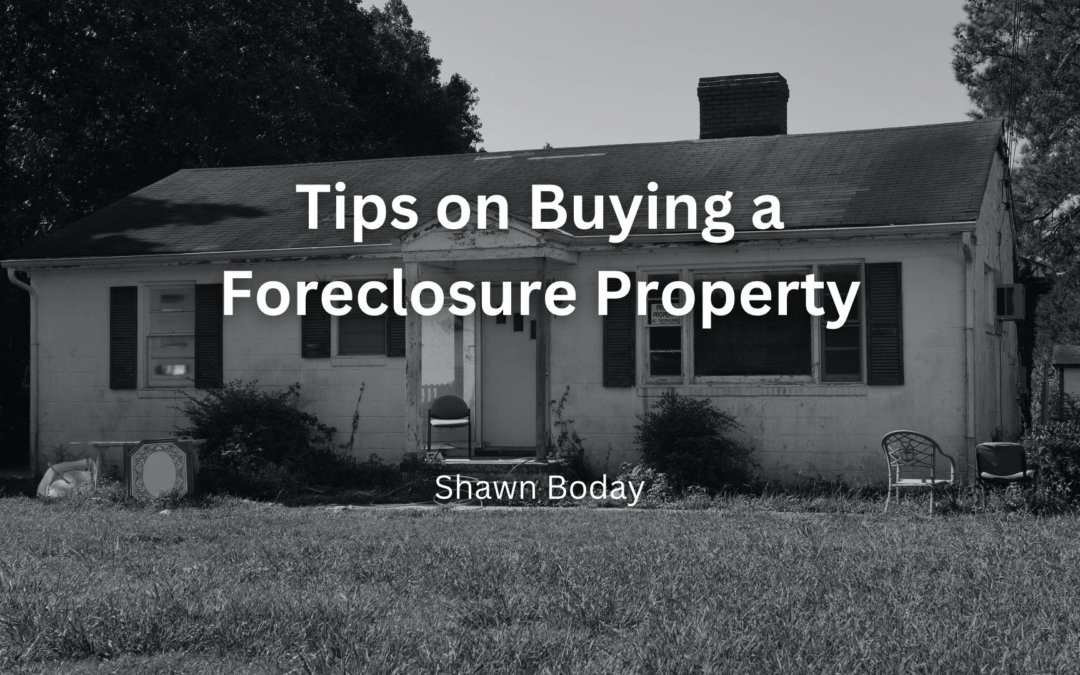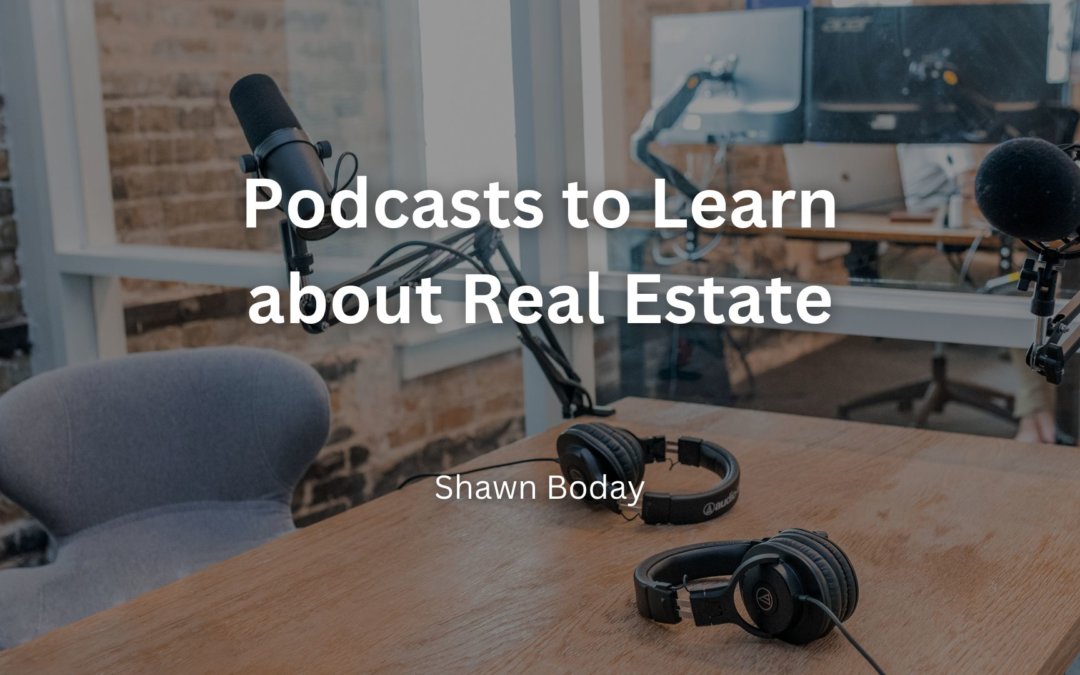
by Shawn Boday | Aug 9, 2023 | Real Estate, Real Estate Tips, Shawn Boday
Selling your home can be a daunting process, especially if you’re not familiar with the real estate world. With this guide, we aim to simplify the journey and provide you with valuable tips to ensure a successful sale while avoiding common pitfalls.
Set the Right Price
Overpricing your home is a common mistake. Instead, research comparable properties in your area and set a competitive asking price. Studies show that properly priced homes sell faster and often for more than overpriced ones.
Create a Welcoming Atmosphere
During showings, give potential buyers space to explore without your presence. Allow them to envision themselves in the house without feeling observed. Remember, first impressions matter, so declutter, stage, and enhance curb appeal to make your home look its best.
Emotion vs. Objectivity
While you may have invested time and money into upgrades, buyers assess your home based on its current condition and comparable properties. An experienced agent can help you detach emotionally and set a reasonable price.
Professional Photography
As the majority of buyers start their search online, high-quality photos are essential. Hiring a professional photographer will showcase your home in its best light and attract more potential buyers.
Choose a Skilled Agent
Partnering with an experienced real estate professional is crucial. They can guide you through the process, help with pricing strategies, marketing, negotiation, and handle paperwork efficiently.
Feedback is Valuable
Be open to buyer and agent feedback. If a consistent issue arises, like lighting or color choices, consider making adjustments. Adapting to feedback shows your commitment to meeting buyers’ preferences.
Data-Driven Pricing
Study the market and comparable home prices in your area. Price your home realistically, considering market trends and recent sales. Slightly underpricing can attract more buyers and lead to quicker sales.
Don’t DIY Marketing
Utilize a variety of marketing channels, including online listings, to reach a wider audience. A strong online presence increases your home’s visibility and generates more interest.
Selling your home requires a balanced approach between emotional attachment and practical decision-making. By setting the right price, presenting a well-maintained home, using professional resources, and listening to expert advice, you can navigate the process smoothly. Remember, the real estate market is data-driven, so staying informed and adaptable will increase your chances of a successful and profitable sale.

by Shawn Boday | Feb 7, 2023 | Real Estate, Shawn Boday
If you’re looking for a great deal in a tough real estate market, buying a foreclosed home may be the best option. While the main benefit of purchasing a foreclosure property is the price, the process is more complex than with a traditional real estate listing. It’s important to know what to look for and how to buy a foreclosed home if you want to get the best deal. Here are five tips to keep in mind when buying a foreclosed home.
It is often difficult to access these properties before they become available for sale.
Many people think there must be a secret way to get access to foreclosed properties before they go on the market, but the reality is that most of these properties are owned by large financial institutions that have a lot of other assets. These companies tend to outsource the entire foreclosure process to a management company, which includes hiring a local Realtor to evaluate the property before it is listed. Local banks may be able to provide information on who’s handling the foreclosed property, but this is the exception rather than the rule. So this means it can be difficult to access these properties before they become available to the public.
Make sure that you are actually getting a good deal.
When it comes to buying a foreclosure, it’s important to ensure that you’re actually getting a good deal. Contrary to popular belief, foreclosures are not always the best buy. In fact, most foreclosures are listed on the open market, meaning that the visibility and demand for them are the same as you would expect with other properties. The price of foreclosures is set at the highest possible value in order to meet the needs of the bank and the listing agent. Therefore, it’s important to remember that foreclosures are not being offered at discounted prices.
Conduct a full property inspection, including all utilities.
Before you purchase a foreclosure property, you should get a full inspection done with the utilities turned on. Make sure the house has been winterized, and you can access the furnace if necessary. Be aware that you may need to purchase special access to get the utilities going, which can be costly and time-consuming.
Prepare for the worst if purchasing a home as-is.
If you’re buying a foreclosure in “as-is” condition, you should prepare for the worst. Although no inspection is required, it’s a good idea to have a contractor evaluate the home and estimate the cost of any repairs. An inspection can identify major issues that the bank isn’t aware of, so it’s worth considering. This will help you decide whether you want to proceed with the purchase or walk away from the deal. To make sure you have room to cover repairs and other costs, look for a foreclosure home within the lower end of your budget.
Get a preapproval letter.
If you’re thinking about making an offer on a foreclosure, it’s important to have a mortgage preapproval letter in hand. This letter will outline information about the amount you are able to borrow based on your credit score and income. With foreclosures, the best deals often go quickly, and buyers need to have their financing worked out beforehand. Real estate investors who pay cash are usually the ones to take advantage of these deals.

by Shawn Boday | Feb 7, 2023 | Real Estate, Shawn Boday
When it comes to buying or selling a home, it’s important to get your information from a trusted source. Unfortunately, there is a lot of misinformation and bad advice online, and if you don’t do your research, you could be caught off guard. Many myths about real estate can be easily debunked with the right information. To help you stay informed and avoid making costly mistakes, here are ten common real estate myths debunked.
Real Estate Myth 01: It’s not necessary to get preapproved.
It is beneficial to get preapproved before beginning the home-buying process. Not only will it lets you know much you can afford, but it will also demonstrate to sellers that you are serious about buying and have the financial means to do it. Contrary to popular belief, getting preapproved won’t hurt your credit score.
Real Estate Myth 02: If you don’t have children, the school system isn’t relevant.
When purchasing a home, consider looking for one with good schools, even if you don’t have kids. Buying in a desirable school district will add to the resale value. This is why schools are an important factor for many homebuyers.
Real Estate Myth 03: Realtors only show homes listed with their own company.
Realtors are bound to a strict code of ethics, meaning they must show you any and all homes that fit your criteria, regardless of the listing company. As long as the property is listed in the MLS system, you have the right to view it.
Real Estate Myth 04: When bidding on a home, offer a lower price.
Making a lowball offer on a house can be risky in a competitive market. If there are multiple offers on the house, submitting a lower offer runs the risk of not being taken seriously and may not result in a counteroffer. Additionally, low offers can come across as disrespectful to the seller and can make for an unpleasant transaction. Therefore, it is best to make an offer that is close to or at the asking price.
Real Estate Myth 05: When pricing your house for sale, set it high.
When it comes to pricing your house for sale, it’s best to list it at a price that is competitive and fair. An overpriced house can be a turn-off for potential buyers and result in fewer offers. To make sure your home grabs the attention of buyers, it’s best to price it realistically so that buyers know they are getting a good deal.
Real Estate Myth 06: To make more money, renovate it beforehand.
Before deciding to renovate your home when selling, it is important to take into account the cost of the improvements and the return on investment. Minor repairs, decluttering, and staging may be all you need to get the best possible price. In today’s market, many buyers are looking for more affordable homes and are willing to do the repairs themselves.
Real Estate Myth 07: If a home is in perfect condition, an inspection isn’t necessary
No matter how new or attractive a home may appear, it is always important to get a professional inspection. This will alert you to any potential issues that need to be addressed before you take possession. Without an inspection, you could be stuck with expensive problems in the future. It is wise to either ask for the problems to be fixed before you buy the home or to have the purchase price lowered to cover the cost of the repairs.
Real Estate Myth 08: Buying is a better option than renting.
It’s not always a given that buying a home is better than renting one. Many variables come into play when considering this decision, including your financial situation, stage in life, and future plans. To make the best decision, it is important to crunch some numbers and compare the costs of each option. You may discover that, depending on your lifestyle and goals, renting could be the right decision for you.
Real Estate Myth 09: Realtors earn a lot of money.
Real estate agents do not have a set salary but instead are paid on commission. This commission is typically split with the brokerage firm that employs them, as well as covers expenses such as driving, hosting open houses, doing research, etc. Furthermore, the commission they receive is not guaranteed, as it is open to negotiation.
Real Estate Myth 10: Having a real estate agent doesn’t offer any benefits.
Having a real estate agent can be a huge advantage when buying or selling a home. They have access to homes for sale that you may not have known about and can use their expertise in order to negotiate the best price possible. They can also help guide you through the paperwork and complex process of buying or selling a property. Without a Realtor, you may find yourself struggling to navigate the market, so having one in your corner can make all the difference.

by Shawn Boday | Feb 7, 2023 | Real Estate, Shawn Boday
Are you looking to expand your real estate knowledge? Podcasts are an excellent source of information on investing, home improvement, and the latest housing news. With so many real estate podcasts available, it can be a challenge finding ones that are worth your time. To make it easier, here are 10 of the top real estate podcasts that span a range of topics related to property and housing.
The Indicator from Planet Money
For those looking to gain a better grasp on business and economics and work in quickly and easily understandable terms, check out The Indicator from Planet Money, a 10-minute podcast that explores “big ideas” related to the economy. Topics include home sales, moving trends, the commercial market, and renting, with each episode featuring data releases or findings and how they affect consumers and the economy. Perfect for buyers, sellers, homeowners, and investors.
BiggerPockets: The Real Estate Investing Podcast
The BiggerPockets Real Estate Podcast is a popular weekly podcast that features informal and fun interviews with a variety of investors and entrepreneurs. Guests range from well-known names like Matthew McConaughey and Ken Corsini from HGTV’s “Flip or Flop Atlanta” to industry players who share their experiences and advice. Hosted by Rob Abasolo and David Greene, this podcast is perfect for beginner and intermediate investors.
Real Estate Today
Real Estate Today is a radio program and podcast hosted by Stephen Gasque, the broadcasting and multimedia communications director for the National Association of Realtors. With hundreds of episodes, the program covers topics such as purchasing a second home, home buying for millennials, maximum selling secrets, creating a smart home, and first-time buying. This is a great resource for buyers, sellers, homeowners, and investors.
Homebuyer Radio
This podcast is the perfect resource for homebuyers, both first-timers and repeat buyers. Hosted by Dan Moralez, a mortgage expert and loan officer in Michigan, it covers topics such as credit repair, getting preapproved for a loan, mortgage comparison shopping, and tips for self-employed homebuyers. With over 150 episodes, it offers a wealth of insider secrets and helpful advice to make the home buying process easier.
Martini Mortgage Podcast
The Martini Mortgage Podcast, hosted by lending expert Kevin Martini from Raleigh, North Carolina, offers listeners a wealth of knowledge and advice on the ins and outs of getting a mortgage loan and purchasing a home. Over 150 episodes, listeners can learn about topics like winning bidding wars, improving credit, tax credits for first-time buyers, avoiding forbearance, and home affordability. Ideal for sellers and buyers, this podcast is a great resource to help navigate the homebuying process.
The Money Pit Home Improvement Podcast
This podcast, which is also a nationally syndicated radio program, focuses on home improvement and repair. Hosted by experts Leslie Segrete and Tom Kraeutler, the podcast covers a wide range of topics related to homeowners and DIYers. Popular episodes from the over 1,500 available include four popular home improvement hacks, stress-free closet organization, germ-free faucets, high-return home improvements, and the best kitchen lighting. It is perfect for homeowners planning to remodel.
The Remote Real Estate Investor
The Remote Real Estate Investor podcast is the perfect resource for remote and out-of-state investors interested in real estate. Hosts Emil Shour, Tom Schneider, and Michael Albaum explore a range of topics, from finding the hottest markets to analyzing properties from afar and avoiding common pitfalls. Perfect for those looking to invest in real estate without actually living near the property.
Making Money in Multifamily
If you are interested in investing in multifamily properties, you should check out the Making Money in Multifamily podcast. Host Dave Morgia is a real estate investor and interviews industry experts to discuss the practices and principles for successful investing in this field. He also dives into deals that didn’t meet expectations and why they failed. It’s perfect for those who are just starting out or experienced in multifamily investing.
Best Real Estate Investing Advice Ever
Joe Fairless hosts this popular podcast that has had over 3,000 episodes, offering daily real estate investing advice. His journey began with low-cost single-family homes, and now his portfolio is worth billions. This podcast provides insight into commercial real estate investing and helps listeners navigate through uncertain markets. It’s a great resource for both novice and experienced investors.
Real Estate News for Investors
This podcast is ideal for beginner and experienced real estate investors, as well as news buffs. Host Kathy Fettke, co-CEO of the Real Wealth Network and author of “Retire Rich With Rentals,” reviews the latest reports from national organizations and market data analysis to inform listeners about building and holding a real estate investment portfolio. Topics range from the best real estate markets to investing in property values and tax law, as well as news and information for real estate flippers.

by Shawn Boday | Jan 4, 2023 | Real Estate, Shawn Boday
Investing in real estate is a great way to achieve your financial goals. It can provide multiple strategies to make money and even become your primary source of income. For those with limited experience in real estate investing, getting started can be daunting. Fortunately, there are strategies available that are tailored toward beginners. Taking the time to learn the basics while investing in a beginner-friendly niche is a great way to slowly build knowledge and confidence. As investors gain experience and profits, they can then transition into more advanced strategies. For those just getting started in real estate investing, these strategies provide a great starting point.
Real Estate Wholesaling
Wholesaling is a quick and lucrative way to start in real estate, where a property is secured under market value and assigned to an end buyer for a fee. The wholesaler does not own the property and makes money through the fee added to the contract. Wholesaling involves building a list of potential buyers by using lead generation tactics like emailing, social media, and sending out direct mailers. This list is then used to get information, such as contact details, funding type, and buying criteria, about the investors. This information helps the business determine what deals the investors are interested in and how to get in contact with them. Wholesaling is a great option for beginners in real estate investing because it requires low capital to start and does not involve actually buying properties. It also provides an opportunity to form a reliable network and gain an understanding of the local market.
Real Estate Prehabbing
Prehabbing is a form of real estate investing that involves minimal upgrades to a property, such as cleaning, painting, and landscaping, in order to make it more attractive to other investors. It is a low-cost way of improving property through sweat equity. Investors should look for properties with structural integrity that require minimal repairs while also keeping location in mind. Research the market and identify popular or up-and-coming neighborhoods to ensure the best return on investment. Prehabbing is a low-risk, low-effort investment option that can yield a quick return on investment. The goal of prehabbing is to sell the potential of a property, not the property itself.
REIT Investing
REITs are a great way for new investors to get into real estate investing without having to commit full-time to the sector. They allow for the purchase of shares in companies that own income-producing property, providing regular dividends and the potential for above-average returns. To get started, research publicly traded REITs and evaluate their records yourself, including the company’s anticipated growth, current dividends, and funds from operations (FFO). It is recommended to consult with a financial advisor before investing. REITs are an excellent investment option for beginners as they provide an opportunity to benefit from real estate without having to purchase properties. They are also known for providing solid returns with low risk, making them a good way to diversify existing portfolios.
Online Real Estate Platforms
Online real estate platforms allow borrowers and investors to connect, allowing developers to post deals and projects that need financing via debt or equity, while investors can benefit from real estate investing without having to manage ownership or labor. This creates a win-win arrangement for all involved. Financing real estate deals can be a great way to diversify and potentially profit from real estate investments, but it is important to always do your research and be aware of the risks. Investors can choose to invest in single projects or portfolios and receive monthly or quarterly distributions; however, platform membership fees may be required, and the funds may be illiquid with lockup periods.
Purchasing Rental Properties
Investing in rental properties is a great way to earn a fixed monthly income by becoming a landlord. With the right purchase and market, you can cover all expenses and potentially have some profit left over. Rental property owners can have an active or passive income stream depending on their preference; they can outsource tasks such as maintenance and repairs to a property manager or do everything themselves to maximize income. House hacking is a form of investing in rental properties where the owner occupies one of the units and rents out the others, allowing them to qualify for a residential loan while earning rental income.
Real Estate Syndication
Real estate syndication is a partnership between investors to identify and purchase properties, usually with the sponsor managing the search, contract, and property, while other investors contribute capital. The sponsor provides skills and time instead of money. Investors in a syndication deal provide the funds to purchase a property and cover any required repairs or renovations. They take on a passive role and receive a return on their investment through periodic payments. Once the property is renovated and sold, the syndication aspect of the deal is completed, and the sponsors are paid an agreed-upon amount for their involvement.
House Flipping
House flipping involves buying a home below market value, renovating it, and then reselling it for a profit. HGTV often provides an introduction to the concept for those interested in real estate investing. Investors who want to flip houses should be aware of the risks involved, such as spending too much on renovation costs or not being able to sell the house due to price or market conditions. New investors should consider finding an experienced partner to help guide them.
Real Estate Investment Groups (REIG)
REIGs are businesses that specialize in investing in real estate by pooling together investor money to purchase multi-unit housing and commercial properties, as well as buying, renovating, and reselling properties for profit. REIGs are an alternative to REITs, offering investors more flexibility and the ability to diversify their capital sources through different investment strategies. They are attractive to investors who seek the returns of real estate without the burden of property management.





